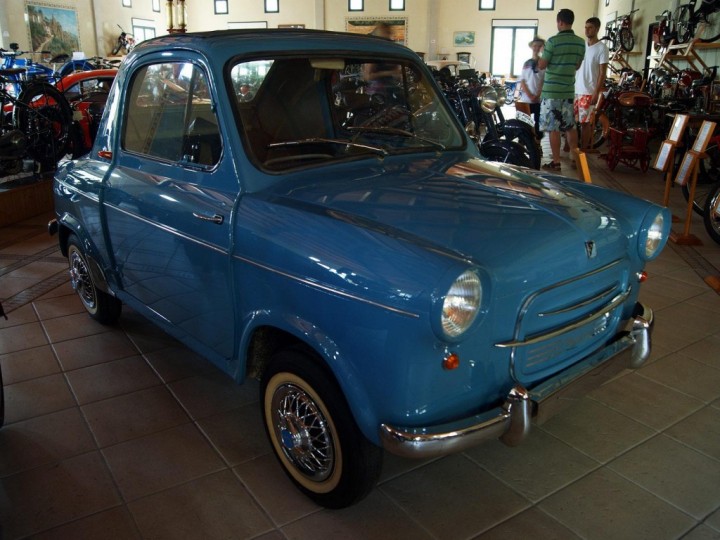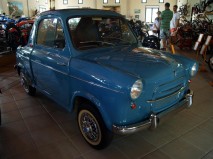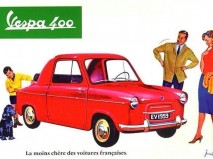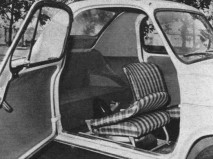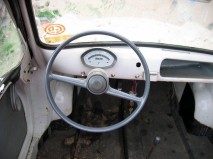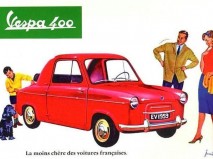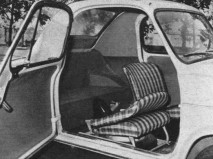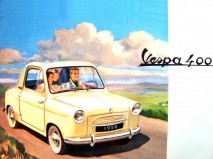1957 ACMA Vespa 400
The 400 was a two-seater with room behind the seats to accommodate luggage or two small children on an optional cushion. The front seats were simple tubular metal frames with cloth upholstery on elastic "springs" and between the seats were the handbrake, starter and choke. The gear change was centrally floor mounted. The rear hinged doors were coated on the inside with only a thin plastic lining attached to the metal door panel skin allowing valuable extra internal space. On the early cars the main door windows did not open which attracted criticism, but increased the usable width for the driver and passenger. Instrumentation was very basic with only a speedometer and warning lights for low fuel, main beam, dynamo charging and indicators. The cabriolet fabric roof could be rolled back from the windscreen header rail to the top of the rear engine cover leaving conventional metal sides above the doors. The 12 volt battery was located at the front of the car, behind the dummy front grill, on a shelf that could be slid out. The spare wheel was stowed in a well under the passenger seat.
Engine
Two cylinder, two stroke, air cooled. Bore, stroke: 63 mm x 63 mm (393 cc). Motor cyclists at the time were used to mixing oil into their fuel, but the manufacturer belatedly realised that this might compromise the 400's standing as a "car", and from the summer of 1958 "two stroke oil" was held in separate reservoir with a semi-automatic dispenser on the right side of the engine bay.
Compression ratio
6.4:1 with 12 hp, later increased respectively to 6.6:1 and 14 hp.[4]
Suspension
Four wheel independent. Four double acting hydraulic shock absorbers with coil springs. Front anti-roll bar.
Manual transmission
3 speed plus reverse, with 2nd & 3rd synchromesh. 4 speed available in non-U.S. markets.
Brakes
Hydraulically operated drums of 6.75 in (171 mm) diameter.
Performance
With only 18 hp (13 kW), top speed is 50 to 55 mph (80 to 90 km/h), depending on road grade, wind conditions, etc. Achieving top speed takes a leisurely 25 seconds. Fuel economy is about 5L/100KM.


